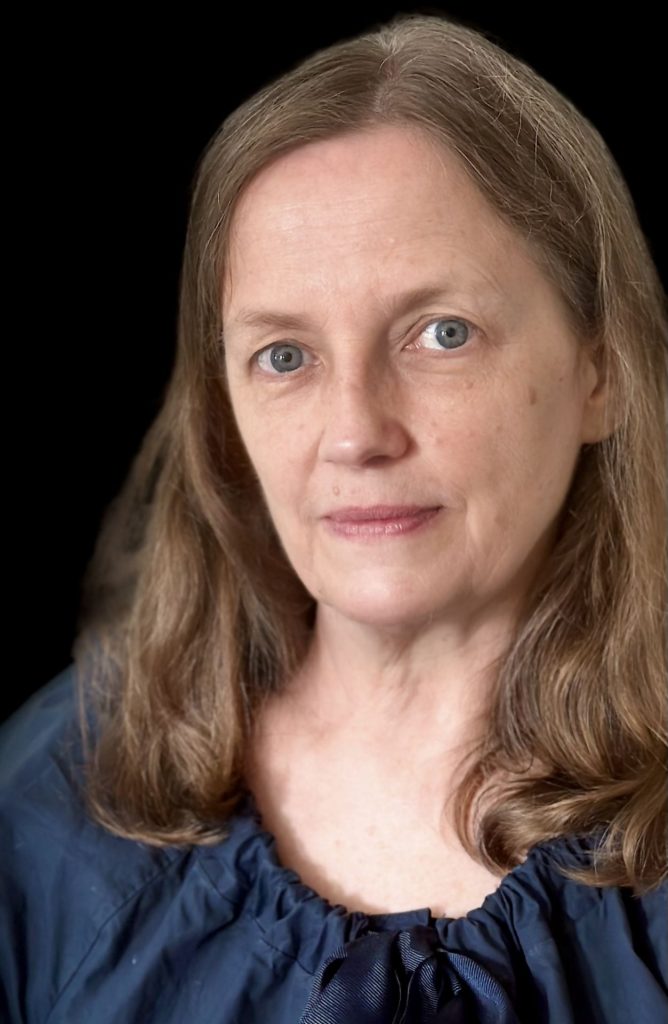
Photo courtesy of Joe Grant
Staff reader Neha Bagchi talks to author Micah Muldowney about micro- and macro- metaphors, the levels of a thorough revision practice, and his story “Apis Mellifera” from New England Review volume 44.3.
Neha Bagchi: So, tell me a little bit about who you are as a writer.
Micah Muldowney: I came to writing somewhat later. I began as a musician, then a musicologist, and then I wrote poetry for a number of years, probably fifteen or twenty, but during that whole interval, most of what I actually consumed was fiction. Even as a child. So at one point I thought, if that’s what I’m really reading—if that’s what I think about and what I’m analyzing—then that is what I should be writing. You see, even as a musician and musicologist I would analyze compositions using ideas borrowed from literary theorists, you know, things like Wittgenstein’s notion of language-games or Mikhail Bakhtin’s concept of heteroglossia: the idea that, for any given word, there’s this enormous potential for direction and intent and meaning, depending on the relationship between the listener or speaker and where they’re coming from. I was already thinking about writing in those kinds of terms, even though, at the time, most of my writing was about music. It was a natural step to start thinking the same way about writing for writing’s sake, and eventually, I found fiction to be the most natural outlet for that kind of play.
NB: Yasha is an entomologist and an academic. I was a little surprised by his using words like “precatory” or “frangible,” which I wouldn’t expect the average entomologist to use. Was that deliberate? What does this say about Yasha?
MM: Yes and no. Language is derived from and grows out of a world or a sphere of human experience, right? People become involved in an endeavor or environment, and they have to create language to talk about it. And so a psychologist will naturally use a different vocabulary than someone who works in construction, or an ornithologist, because different things are important to them and what they are trying to do. It gives each a different worldview.
In Yasha, you have this person who has nothing to do but think, in a location where he can’t really communicate with people in meaningful ways, and he’s trying to figure out how to do something that is difficult and unusual. It seems like a very simple idea: there’s a bee that is hurt and I’m going to fix it. But if you were going to actually do such a thing, how many worlds would you have to touch? There’s a little bit of engineering; there’s a little bit of medicine; there’s the entomology part; then there’s navigating the penal system and the bits and pieces of ideas from psychology or mythology or even chess that he uses to help keep himself sane. It’s a situation where he has to marshal all his mental resources to visit all of the spheres he’s ever touched, even the ones that are relatively esoteric. And I think Yasha is something of a nonconformist, anyway. He’s eclectic in his views and has opinions, and that’s probably part of why he is where he is.
NB: Right. If an intellectual is imprisoned, I’m automatically thinking about oppressive regimes, military or dictatorships. That’s who imprisons our philosophers, our scientists, and so forth.
MM: Right. And this is a person who doesn’t have anything left but words. And he’s in his head all the time. And he’s not sure of his reality, whether it’s real or not, or whether he’s going crazy. So all of that informs how he articulates himself.
NB: Yasha is unusually erudite and intelligent. The fact that he’s in prison suggests a lot about the outside world. All that makes sense . . . but how did he come to use the word “yeeted”?
MM: Yes, and that goes back to the question you asked about word choices like precatory or frangible. In this story, the narrator pulls together a lot of different threads to express the whole of Yasha’s experience, even those parts that are clearly outside of what he’s done before. Yes, we do spend a lot of time in Yasha’s head, getting his take, so to speak, but the story also needs to be grounded in the world he’s inhabiting, and that’s a world textured by prison slang and contemporary expressions that may be outside his own vocabulary. There are also little things the narrator does throughout to paint Yasha as a suffering saint type or martyr figure, words or phrases that might have spiritual or even oracular associations. It’s all a part of fleshing out the mood and color of the piece, even when it includes things that Yasha himself would never have said.
NB: Right, and you used “yeeted” to describe something that one of the other prisoners had done. It’s clear that Yasha is very different from the people around him. So with “yeeted,” that’s Yasha reporting to us how that other person speaks.
MM: Exactly.
NB: You achieve such a delicate balance with the many registers in this story that I have to ask you: did you workshop this story? Did it go through a lot of revision?
MM: No, I didn’t workshop it, but it did go through many, many rounds of revision. It was twice as long at one point. There are whole parts of it that I have somewhere else that, you know, might be part of something later on. And so there are whole characters that existed and then didn’t exist. Unfortunately, I don’t really have a group to workshop my writing with. It would be a wonderful thing to do, but very few of the people I work with or went through school with write fiction. They’re mostly musicians or academics or do something else at this point. I don’t have a circle you would go to for workshopping a story, outside family.
NB: And it can be very difficult to find that kind of group out in the world.
MM: Yes.
NB: So, what was your revision process like?
MM: I did separate reviews for separate aspects of the writing. Writing is complex; there is a lot happening on different levels. For example, there’s the aesthetics of it, how it flows on a sentence level, the music of it, you know. How’s the rhythm of this sentence? Where are the cadences in this paragraph? Where do you pause? How heavy are the pauses? (And I tend to agree with Cormack McCarthy that punctuation is more about the weight of a pause than it is about the “rules of punctuation.”)
NB: Yes! I tend to get on a soap box about that. Punctuation is like the dynamic markings in written music: it’s telling you how to move through the piece or how the piece moves through time. It’s not so much about memorizing arbitrary rules—it’s about the music of language.
MM: Right? I totally agree. Then on a different level, I might look at the choices I’m making around dialogue: do these words actually work with the characters and what they want or don’t want? It’s so easy as a writer to want to write dialogue that pushes what you want to happen, but there has to be this interplay of what the characters in the story do and do not want from the conversation if you want it to come alive on the page. Separately, I might look at the ideas that are expressed and ask, do these ideas make sense the way they’re articulated? Do they lead from one to another? I don’t try and revise a story all at once; I revise one particular strata at a time.
NB: You mentioned spending time just on the ideas in the story. What are some central ideas that you’re exploring?
MM: At it’s heart, this story is about hope. Well, both hope and the enemies of hope, or what hope is up against, because hope is the kind of thing that, like a faint light, only becomes clearly visible in the dark when you need it. It’s a very important human emotion and motivation, but like many other important ideas we try to articulate, it can be so abstract that it’s hard to really feel at a gut level. I ask, how can I create a context where this makes sense on an emotional level? I might begin, for instance, by interrogating the idea a little, to see where it goes.
What if someone had to do something that was really difficult, but no one would know anything about it?
What if that struggle were intensified by the fact you are in a place that makes it much more difficult than it would otherwise be, or maybe even a place that makes it impossible for anyone to know whether or not it happened?
What if it was a place that made it so you weren’t even sure that you were doing it at all?
So right there, I’ve got some more ideas about how I want to talk about hope and what hope means. Now, I have to find a metaphor or suite of metaphors that is rich enough to create a world of associations around the ideas I’m exploring—and I mean that in a broad sense. Context and environment often serve as metaphors in fiction to give heft to the ideas or feeling of a piece, and in this story, the stark realities of solitary confinement are a tangible foil for the concept of hope and what it has to pass through. The bee is something delicate and fleeting, something whose only value lies in its beauty and emotional resonance, much like the famous Japanese metaphor of the cherry blossom, and much like our own first-hand experience with hope. A large part of my process becomes asking: where is the world-creating metaphor, the one that will fill out the sensory and emotional landscape the characters will inhabit, and give them structural weight? From there I can start to flesh out the ideas that make the story.
NB: I love your distinction between a micro-level metaphor and a metaphor that opens up a world. And your central metaphors—the prison, the bee—do a lot of work to open up for the reader how much Yasha has picked up over a lifetime. You must have had to do so much research for this story.
MM: Yes. And it was a lot of fun, though there’s probably a few things in my search history now that might land me on a no-fly list someday. Like how to make synthetic weed in prison. But that’s basically what he has to create to be able to anesthetize the bee.
NB: Thank you for this lovely, meticulously crafted story. I am so honored to be part of its journey to publication in NER.
MM: Thank you.
Micah Muldowney is the author of the collection Q-Drive and Other Poems (Finishing Line Press, 2022). His short fiction, poetry, and essays have been featured in Descant, West Trade Review, Grey Sparrow, Soundboard, and many others. He currently lives in greater Philadelphia where he is working on a novel.
Neha Bagchi writes fiction and poetry. She translates poetry from Bengali and Hindi/Urdu into English, studies translation theory, and is working on a critical analysis of Tagore’s “Gitanjali” in translation. She is also working on a novel about grief, featuring a haunted bookshop and a woman with a third arm. She has an MFA in creative writing from San Francisco State University.


